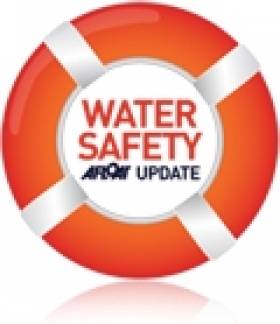Displaying items by tag: Portuguese ManofWar
Portuguese Man-of-Wars Arrive on Irish Shores
#WATER SAFETY - Irish Water Safety is warning members of the public that Portuguese Man-of-Wars have landed on beaches in Waterford and Cork, with reports of sightings in Tramore, Ardmore, Inchydoney and Schull so far – and may land on other shores, particularly Kerry
With another sunny weekend expected, surfers and families enjoying the beach are at a high risk of encountering them and their stings, which usually cause severe pain to humans.
The Portuguese Man-of-War is an invertebrate and carnivore with tentacles that can reach up to 50 metres in length. Despite being commonly thought to be a jellyfish, it is actually a different form of marine wildlife known as a siphonophore: an animal made up of a colony of organisms working together.
Man-of-wars are sometimes found in groups of 1,000 or more, floating in warm waters throughout the world's oceans. They have no independent means of propulsion and either drift on the currents or catch the wind with their gas-filled floats. To avoid threats on the surface, they can deflate their air bags and briefly submerge.
They are most commonly found in the tropical and subtropical regions of the Pacific and Indian oceans and in the northern Atlantic Gulf Stream.
The stinging, venom-filled nematocysts in their tentacles are used to paralyse small fish and other prey. Stings leave whip-like, red welts on the skin that normally last two or three days after the initial sting, though the pain should subside after about an hour.
However, the venom can sometimes travel to the lymph nodes and may cause a more intense pain. A sting can also lead to an allergic reaction and other serious effects, including fever, shock, and interference with heart and lung function. Stings in some cases have been known to cause death, although this is extremely rare.
Medical attention may be necessary, especially if pain persists or is intense, there is an extreme reaction, the rash worsens, a feeling of overall illness develops, a red streak develops between swollen lymph nodes and the sting, or either area becomes red, warm and tender.
Even detached tentacles and dead specimens (including those that wash up on shore) can sting just as painfully as the live creature in the water and may remain potent for hours or even days after the death of the creature or the detachment of the tentacle, so should always be avoided.
The best treatment for a Portuguese Man-of-War sting is to avoid any further contact with the creature, carefully remove any remnants of it from the skin (taking care not to touch them directly with fingers or any other part of the skin to avoid secondary stinging), Apply salt water to the affected area (not fresh water, which tends to make the affected area worse) then follow up with the application of hot water (around 45 degrees C) to the affected area, which eases the pain of a sting by denaturing the toxins.
If eyes have been affected, to irrigate with copious amounts of room temperature tap water for at least 15 minutes, and if vision blurs or the eyes continue to tear, hurt, swell, or show light sensitivity after irrigating, or there is any concern, to see a doctor as soon as possible.
Vinegar is not recommended for treating stings, as it can increase toxin delivery and worsens symptoms of stings from this species. Vinegar has also been confirmed to provoke hemorrhaging when used on the less severe stings of nematocysts of smaller species.
For more details from Irish Water Safety on dealing with jellyfish stings, click HERE.





























































